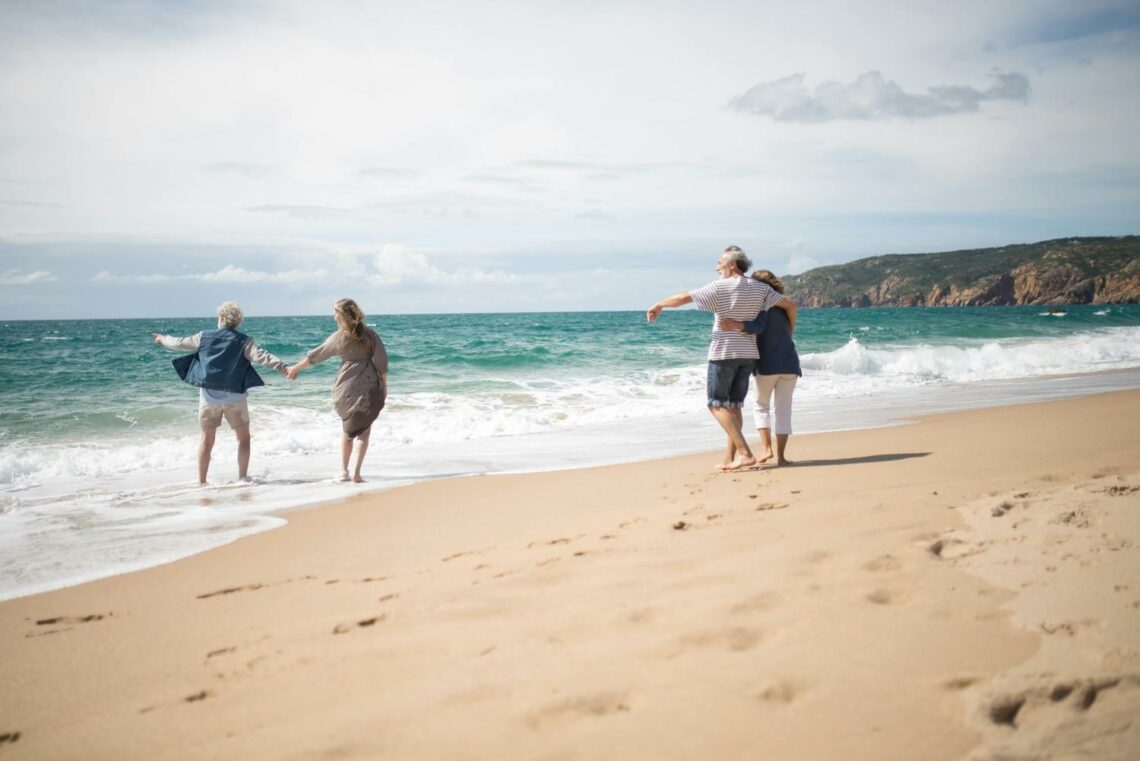Supporting an elderly parent from another country presents distinct challenges. Distance makes it harder to monitor changes in health or daily functioning, and many parents understate difficulties to avoid causing concern. With clear planning and the right support network, you can ensure your parent receives appropriate care while maintaining their independence at home.
Key insights:
- Distance makes it harder to monitor changes in your parents’ health – small signs like weight loss or missed bills signal when additional support is needed.
- Early conversations about future care preferences prevent rushed decisions during emergencies and reduce family conflict.
- Professional carers provide regular support and act as your direct connection, helping you understand when your parents’ needs are changing.
- Doctor-founded clinical oversight gives families confidence when coordinating care from overseas, with custom care plans that adapt as needs change.
Understanding the emotional strain of long‑distance caring
Living abroad while caring for an elderly parent can create tension. You may experience persistent worry about their safety, frustration at not being present, or pressure from family members who expect more involvement. This experience is common among families managing care across borders.
Parents often minimise difficulties to avoid causing worry. When you visit, observe beyond what they tell you. Notice changes in their home maintenance, daily routines, mobility, mood or personal care. These observations provide a more accurate picture of their well-being than reassurance alone.
Talk early, plan early
Discussing future care needs works best when your parent is still healthy. Have clear, compassionate conversations about their preferences if health changes. You might explore:
- Whether they’d consider downsizing to a more manageable accommodation
- How do they feel about retirement villages or sheltered housing
- Who they’d trust to make decisions on their behalf
- What support they’d want if they became too frail to manage alone
These conversations prevent rushed decisions during emergencies. They reduce conflict between family members and clarify your parents’ wishes. This makes arranging appropriate support from overseas far more straightforward.
Warning signs your parent may need more support
When caring from abroad, identifying early changes is essential. Watch for signs such as:
- Unopened post, missed bills or confusion about paperwork
- Weight loss, an empty fridge, or a decline in meal preparation
- Frequent falls or unsteadiness
- Missed medication or confusion about doses
- Changes in memory, mood or behaviour
- A home that appears cluttered, unclean or poorly maintained
Small changes signal that your parent needs additional support – either from family, neighbours or a professional carer.
Practical ways to stay involved from abroad
Regular communication helps you stay connected and informed. Video calls allow you to see how your parent manages day-to-day activities while providing companionship. Technology can support long-distance care:
- Medication reminder apps
- Fall-detection devices
- Smart home systems that monitor activity or raise alerts
- Shared online calendars for appointments and tasks
Maintain regular contact with nearby neighbours or friends who can check in and alert you if anything seems concerning.
Preparing for future care needs
A large proportion of people will need some form of care in later life. When coordinating from overseas, establishing reliable local contacts is essential.
Keep updated contact details for your parents’ neighbours, friends and nearby family members. Identify who can respond if your parent needs immediate help – whether checking on them after a fall, arranging urgent home repairs, or attending medical appointments.
Research local services, including NHS support, social services, community programmes and private care providers. Understanding what’s available before you need it reduces stress when circumstances change.
If your parents have retired abroad
Supporting a parent who retired overseas requires navigating unfamiliar healthcare systems, often in another language. Understanding what services exist and how quickly help can be accessed becomes more difficult when you’re not local.
Encourage your parents to register with their local consulate and connect with expat communities. These networks provide practical guidance and support if circumstances change.
How to talk to your parent about increasing support
Conversations about care require sensitivity. Many older adults worry about losing independence or becoming a burden. Approach the topic with clarity and patience:
- Focus on their well-being rather than their limitations
- Explore what would make life easier, not what they can no longer do
- Validate their feelings and concerns
- Suggest small changes first, rather than major decisions
If your parent resists help, recognise this reflects emotional difficulty, not lack of need. Patience and ongoing conversations work better than pressure. Our clinical team has guided many families through this exact situation.
Looking after yourself
Distance creates worry and sometimes guilt. Clear planning reduces this anxiety. When you’ve established a structured support system and local contacts understand their role, you feel less isolated with the responsibility.
Talking to others who’ve managed similar situations provides perspective and reassurance. Many families today coordinate care across continents due to work, finances or lifestyle choices. Your involvement, even from abroad, ensures your parent receives the support they need while maintaining their independence for longer.
Professional support from a distance
Professional care brings reassurance when you can’t be physically present. A trained carer visits regularly to assist with household tasks, prepare meals, provide medication reminders and offer companionship.
Reliable carers act as your direct connection when you’re not there. They help you understand when your parents’ needs are changing and when additional care becomes appropriate.
Hometouch: Clinical expertise for families caring from abroad
Our approach combines doctor-founded dementia expertise with personalised carer matching. We understand the specific challenges families face when managing care from overseas.
“I have used Hometouch twice when my mother was hospitalised and Dad couldn’t be left alone. I work in this industry myself (abroad) and recognised they were doing whatever it took to get someone to my father as soon as possible. Both the girls who came were excellent and went above and beyond. They were experienced and caring, and my parents loved them both. I would not hesitate to recommend Hometouch. Being overseas, it is very comforting to know my parents are being looked after well.” – Alison
Our clinical team provides the clinical oversight that creates genuine peace of mind when you’re caring from another country. We create custom care plans that adapt as needs change, ensuring your parent receives support that aligns with their medical needs and personal preferences.
Founded by an NHS dementia doctor and guided by clinical specialists, Hometouch gives families confidence in care, even when managing it from thousands of miles away. Talk to one of our care experts – no pressure, just clear guidance when you need it most.




